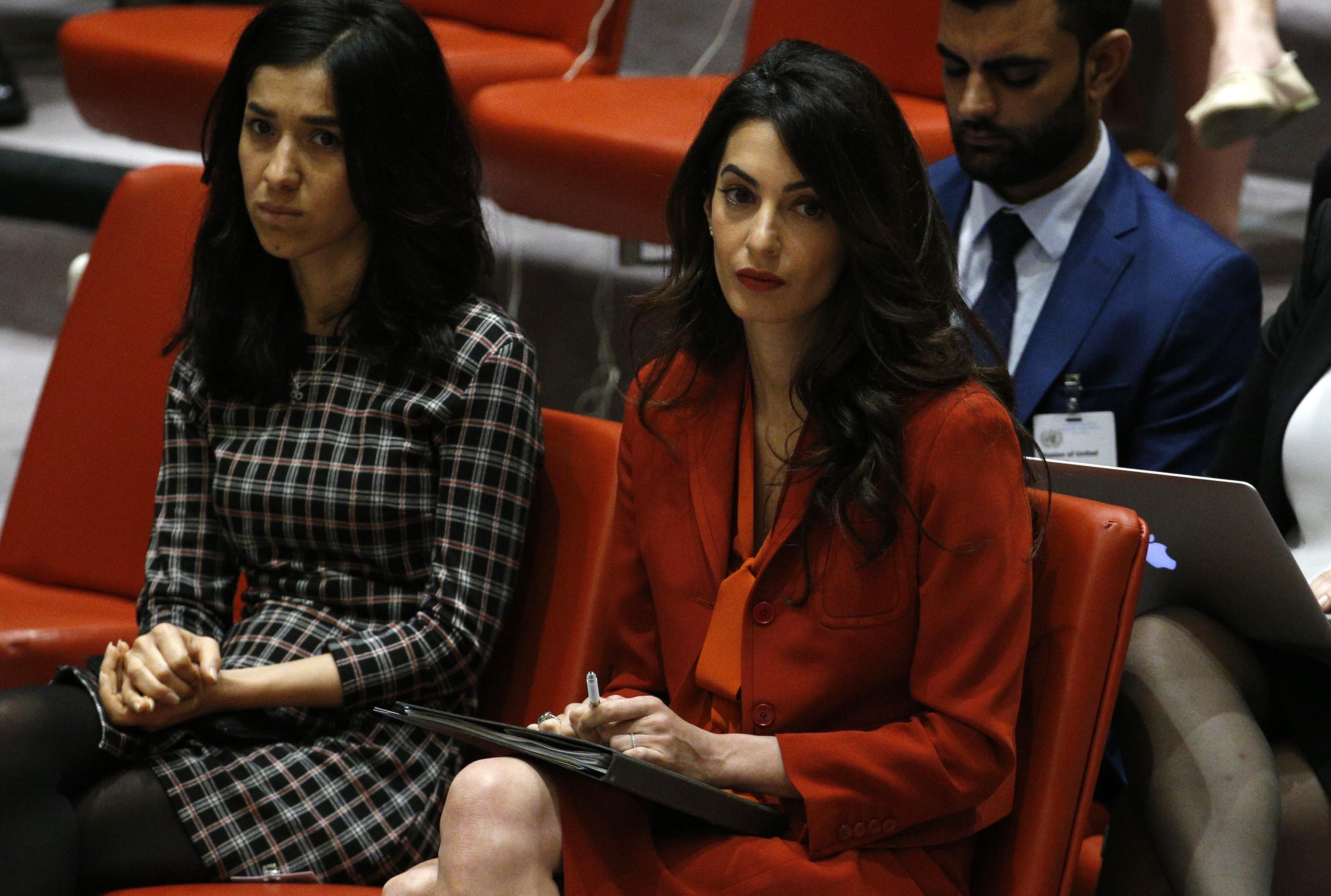
FRANKFURT (Reuters) -A German court on Tuesday jailed a former Islamic State militant for life for involvement in genocide and crimes against humanity against minority Yazidis in Iraq and Syria, including the murder of a five-year-old girl.
It was the first genocide verdict against a member of Islamic State, an offshoot of al Qaeda that seized large swathes of Iraq and Syria in 2014 before being ousted by U.S.-backed counter-offensives, losing its last territorial redoubt in 2019.
In a landmark ruling, the court in Frankfurt found Taha al-Jumailly, 29, an Iraqi national, guilty of involvement in the slaughter of more than 3,000 Yazidis and enslavement of 7,000 women and girls by IS jihadists in 2014-15.
This, the court ruled, included the murder of a five-year-old girl the defendant had enslaved and chained to a window, leaving her to die in scorching heat in 2015 in Iraq.
Al-Jumailly, who entered the court covering his face with a file folder, was arrested in Greece in 2019 and extradited to Germany where relatives of slain Yazidis acted as plaintiffs supporting the prosecution.
“Today’s ruling marks the first ever worldwide confirmation by a court that the crimes of Islamic State against the Yazidi religious group are genocide,” said Meike Olszak of Amnesty International’s branch in Germany.
The defendant’s German wife, identified only as Jennifer W., was used as a prosecution witness at his trial. She was sentenced to 10 years in prison last month for involvement in the enslavement of the Yazidi girl and her mother.
The Yazidis are an ancient religious minority in eastern Syria and northwest Iraq that Islamic State viewed as supposed devil worshippers for their faith that combines Zoroastrian, Christian, Manichean, Jewish and Muslim beliefs.
Islamic State’s depredations also displaced most of the 550,000-strong Yazidi community.
(Writing by Joseph Nasr; Editing by Mark Heinrich)











